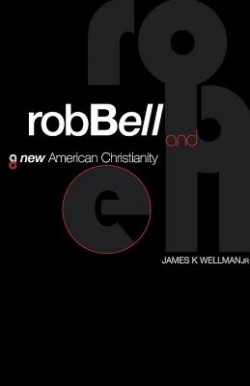Spiritual Virtuoso
A couple of months ago I read James K. Wellman's book entitled Rob Bell and the New American Christianity. It is interesting to use Rob Bell as a case study for speculating the future of American Christianity because Bell's theological understandings have been over simplified from the back lash of Love Wins*.
Bell's theology not only is influenced by Process Theology and Rene Girard but also things like spiral dynamics integral and Radical Theology and Evangelicalism. Bell, like each one of us, is much more complex than we like to believe.
Anyway, one of the things that Wellman talks about are people who are "Spiritual Virtuosos". I cannot recall if he coined this term or is citing some research on this sort of topic, but nonetheless the phrase "Spiritual Virtuoso" captured my imagination.
Here are a list of embodied qualities of a "Spiritual Virtuoso":
- inner personal authority
- confidence mixed with vulnerability
- willingness to break with religious customs for the sake of spiritual and moral principles
- detachment from, though not a rejection of, social structures
- ascetic—practicing self-denial relative to physical and sexual needs
- little interest in gaining followers, or creating a social movement
- focused on personal salvation and more other-worldly
- willingness to embrace martyrdom
- followers are attached to principles over person (less forgiving of a leader’s faults)
- authentic humility and openness
I don't know what to do with this at this point, but I wonder if one is born or one becomes a virtuoso. Do the Spiritual Disciplines help create virtuosity?
There are a number of great insights in this book and I encourage anyone interested in the future of American Christianity to consider reading this.
One of my favorite lines from this book?
Laughing as he said, ‘One of the most lethal aspects of that word—heretic—is that it ends discussions, rather than starts them.’ Turning more serious, Bell warns, ‘And that’s why I think it’s so dangerous. It ends discussion, and it’s holding hands with violence.’
*The thing about it though is that Love Wins is really not as controversial as Jesus Wants to Save Christians, but Love Wins is a 'sexier' topic.
The Church is at her best when...
The Church is at her best when she recaptures the visionary, creative, innovative, and compassionate Spirit God has given to God's people.
Many churches are not started by a clergy person or a bishop or an ecclesial administrative body. Many churches are stated by a few people who have a vision.
Many churches have buildings and sacred spaces that were not designed by a minister but by the innovate people of the church.
Many churches work to reclaim and pronounce blessings on parts of the world that others have dismissed or discarded. When the people engage in the innovative spirit of God to do the work of redemption and reconciliation - the church is at her best.
Many churches have a ministry with the poor or the disenfranchised. These ministries are not driven by a single individual or a single pastor but the Spirit of compassion of the people of God.
The Church is at her best when she (not to one individual or one pastor or one leader) recaptures the visionary, creative, innovative, and compassionate Spirit God has given to God's people.
Rabbi going to heaven everyday
Sometime ago I heard this story, told by Rev. Jerry Chism, about a rabbi that goes to heaven everyday. I did a quick search and could not find it. Perhaps I am telling it incorrectly, but here is what I can recall. If you know this story and want to share the "real" version, please comment below.
Disciples travel to a nearby town to learn from a Rabbi who, according to the locals, goes to heaven everyday. They arrive to find the Rabbi's face glowing. After a day of learning from the Rabbi, the disciples go home. Early the next morning they arrive before dawn and hid behind the bushes to watch the Rabbi ascend to heaven. The disciples are confused when the Rabbi comes out from his home and begins to walk out of town. So they follow. Upon reaching the outer edges of town, the Rabbi begins to give his cloak to the naked, feed the hungry and bind the wounds of the hurting. he embraces to sojourner and shares words of grace to the widows. The disciples watch all this at a distance and are amazed when the Rabbi turns around to go home - his face was glowing. The disciples understood what it meant to go to heaven and from that day on the each went to heaven everyday.

Be the change by Jason Valendy is licensed under a Creative Commons Attribution-NonCommercial-ShareAlike 3.0 Unported License.



